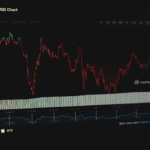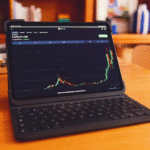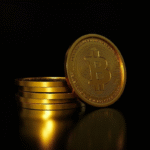Digital assets have exploded onto the financial scene, capturing imaginations and sparking both excitement and trepidation. But what exactly are they, and how do you navigate the opportunities and risks they present?
At their core, digital assets are intangible representations of value stored electronically. This encompasses cryptocurrencies like Bitcoin but also non-fungible tokens (NFTs) representing unique digital items, and even security tokens that function like traditional stocks. Their appeal lies in several key advantages:
Advantages
Decentralization: Digital assets operate on distributed ledgers like blockchain, removing the need for central authorities. This fosters transparency and potentially lower fees compared to traditional financial systems.
Accessibility: Anyone with an internet connection can potentially participate in the digital asset market, breaking down geographical barriers and democratizing access to investments.
Innovation: Blockchain technology unlocks new possibilities like fractional ownership of assets, faster transactions, and secure tracking of goods for innovative investment solutions.
Potential for High Returns: The digital asset market is still young and volatile, offering the possibility of significant gains, though this comes with increased risk. Hedge fund companies, for example, are exploring ways to incorporate these assets into their portfolios, employing various Hedge fund investment strategies. However, careful hedge fund company performance analysis and robust hedge fund company investor relations are crucial for success.
Risks
However, the very features that make digital assets attractive also introduce inherent risks:
Volatility: The value of digital assets can fluctuate wildly, leading to substantial losses for investors.
Security Threats: Digital wallets and exchanges can be vulnerable to hacks, potentially leading to theft of your assets.
Regulation: The regulatory landscape surrounding digital assets is still evolving, which can create uncertainty for investors.Look for partners with a strong understanding of digital assets consultingand blockchain asset investments consulting.
Lack of Consumer Protection: Unlike traditional investments, digital assets may not have the same level of consumer protection, making it crucial to do your own research.
Trading Process
So, how are digital assets actually traded? Here’s a simplified breakdown:
Choose a Platform: Select a reputable online exchange that allows buying and selling digital assets. Consider security, fees, and the specific assets they offer.
Fund Your Account: Transfer traditional currency (like USD) to your exchange account to purchase digital assets.
Place Your Trade: Choose the specific digital asset you want and specify the amount. The exchange will match you with other traders on the platform.
Secure Your Holdings: Once you own digital assets, store them securely in a digital wallet.
At Kenson Investments, we’re ditching the old guard and diving headfirst into the revolutionary world of digital assets.Confused by crypto jargon? We speak fluent “future of finance.” Our team of trailblazers will guide you through the uncharted territory of digital assets, helping you craft a personalized roadmap to success.
Whether you’re a seasoned investor looking for Blockchain Asset Investments or a curious newcomer seeking Cryptocurrency investment consulting, we’ve got your back.Ready to unlock the potential of your digital future? Contact Kenson Investments today.














